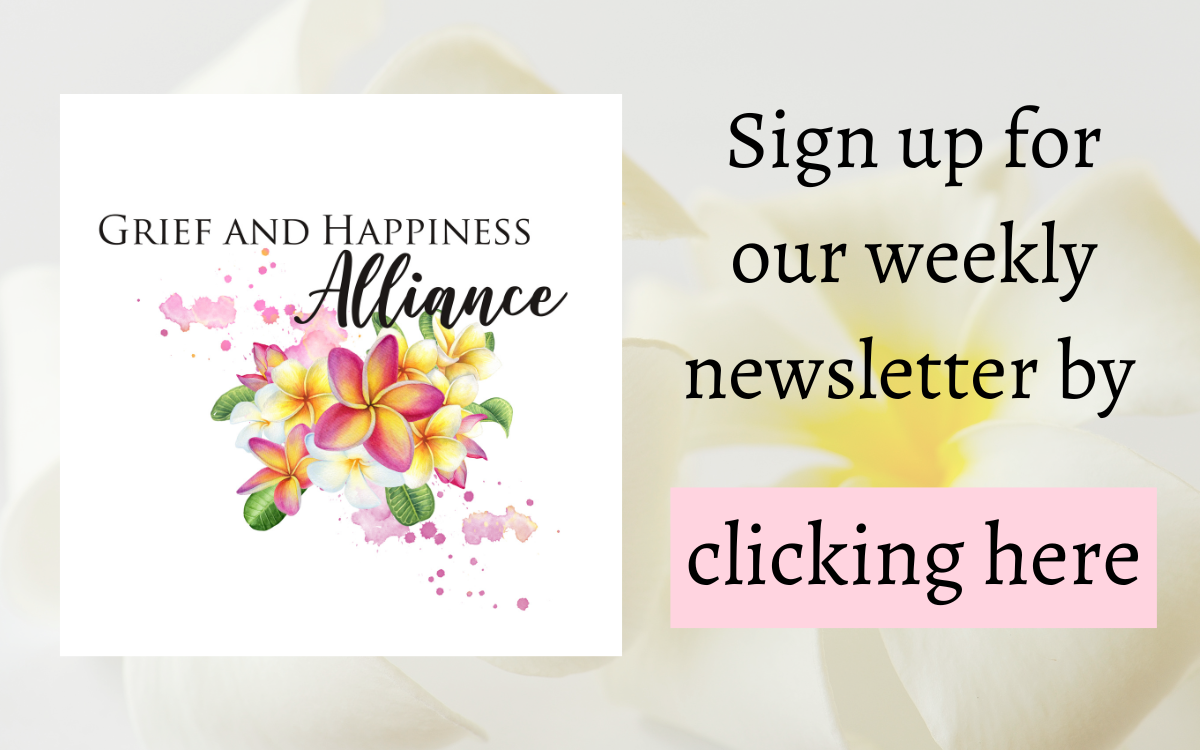
After Ron died, I was drifting, not knowing what I was supposed to do next since I had spent so long tending to his needs and doing all I could to cherish the valuable moments we had left. Only after a close friend of ours died suddenly did I realize that I could help his wife, and in so doing, I helped myself start rising up from the fog I had been slogging through. Helping her helped me find ways to help others in grief. And the more I helped others, the easier I could breathe.
I have worked now for three years to find ways to support people through the private Facebook groups I lead, the classes I teach on writing through grief, the interviews I do online, the social media I post all of which offer positive support, and the book I have written. I am not saying this for praise. I do all this out of a commitment I have to help others. While I appreciate when people express gratitude to me, that doesn’t drive me. I feel my life’s work is to support those dealing with loss, something that is needed more every day with all that is going on in our country.
Lately, I have been having people on social media criticizing me for the work that I am doing saying that I should be ashamed of writing what I have online to shamelessly promote my book. I have to say that it has shocked me. And it didn’t just happen once. In what I post in my blog and on social media posts, I occasionally mention my book. I do this so that people who would appreciate what I can say to help them. I read many books when Ron died. I learned much from them, but what I was looking for was positive ways to deal with what I was experiencing, so that’s what I wrote.
When criticized for something I have been selflessly doing, it hit me hard, and I found myself questioning if I was doing the right thing. In questioning my actions, I realized how important it is for me to stay positive and do the right things for the right reasons. I don’t know why someone would choose to say what they said. What I do know is that I am here to help. I am here to share my love with you. I am here to offer you support. I am here to brighten your day and your life. I am here for you, and I will continue to do all I can in a variety of ways to help you find each moment the best it can be at that moment.
Thank you so much for reading my words.





